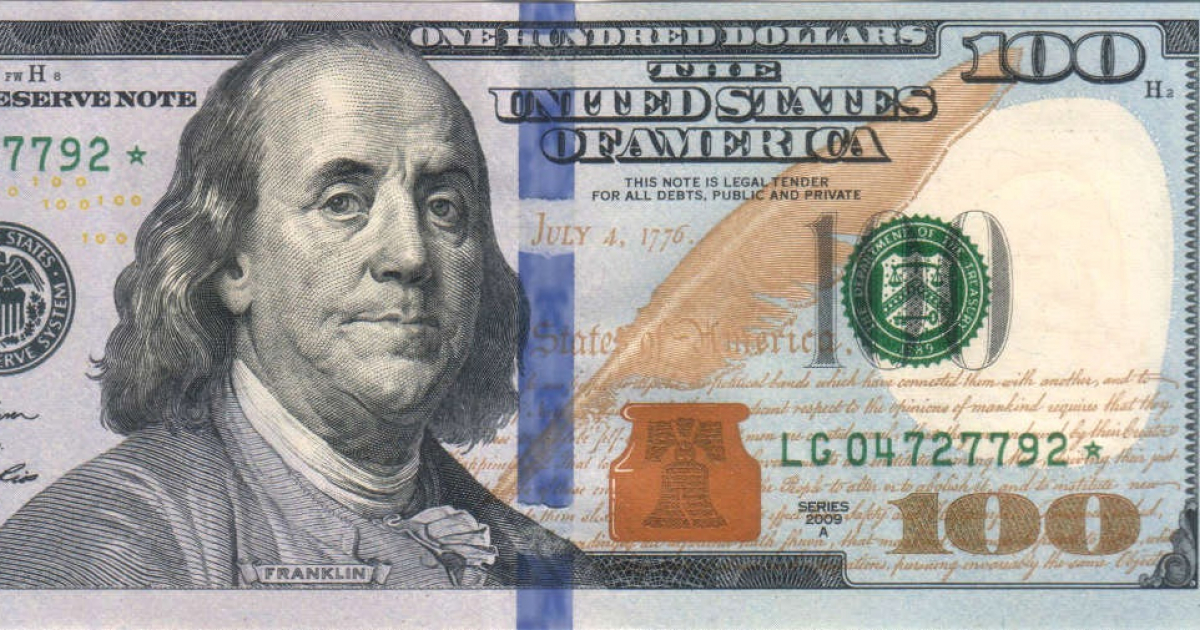
During certain times of the year, some crimes tend to increase, and the police in Cleburne, Texas, have warned that "the counterfeiting season is in full swing."
According to the Police Department, counterfeit bills have been detected in retail shops and local restaurants. This year, the main concern is the increase in so-called "washed" bills.
What is a "washed" bill?
A "washed" bill is an authentic piece of U.S. currency from which the original markings have been removed in order to reprint it with a higher denomination.
"For example, a criminal can 'wash' a five-dollar bill and reprint it as a one-hundred-dollar bill," the Police Department explained in a statement.
The peculiarity of this type of counterfeiting is that the bill usually passes the "pen test," a special marker used to verify the authenticity of the paper, as the material is genuine.
For this reason, agents caution that this test should not be the only method for detecting counterfeits, also suggesting the use of black light, although it is not infallible either.
How to identify authentic bills: Pay attention to the details.
The police emphasize that thorough observation is key to identifying counterfeit bills.
Defective prints: Counterfeit bills often exhibit blurred, faded, or poorly defined details.
Color-changing ink: The latest banknotes of $10, $20, $50, and $100 feature special ink in the lower right corner that changes color when the note is tilted. This metallic effect is difficult to replicate in counterfeits.
Ink quality: When rubbing the corners of a genuine bill, the ink should not smear or fade, which is often the case with counterfeit bills due to the use of lower quality standard ink.
Security Thread: When holding a banknote up to the light, the security thread should match the denomination of the bill. For example, on a $100 bill, the thread will display the number 100.
Watermark: On banknotes of 10 and higher denominations, the watermark must match the portrait on the note. The 5 banknotes contain two watermarks of the number 5.
What to do if you suspect a counterfeit bill?
The United States Secret Service recommends contacting local authorities immediately if counterfeit money is suspected. Additionally, local banks can provide assistance in verifying the authenticity of the currency.
Staying vigilant and following these tips can help protect you against the use of counterfeit currency in everyday transactions.
Filed under: